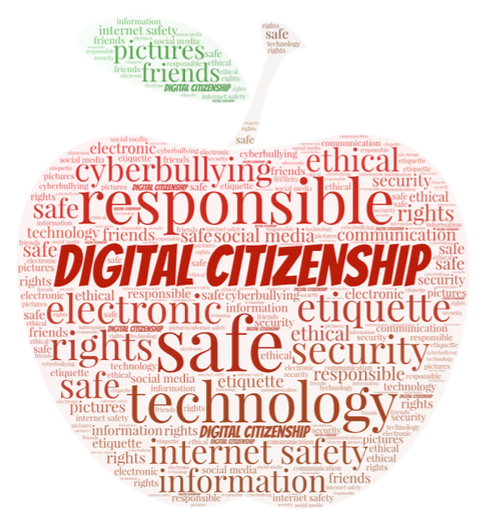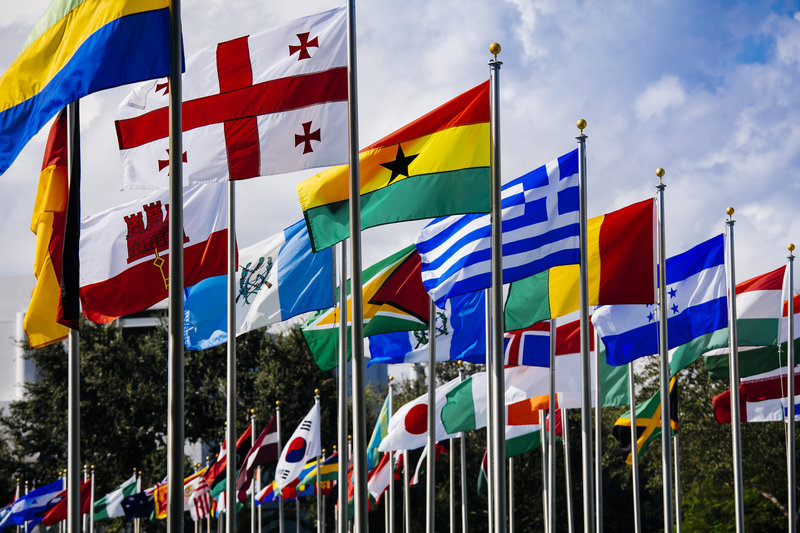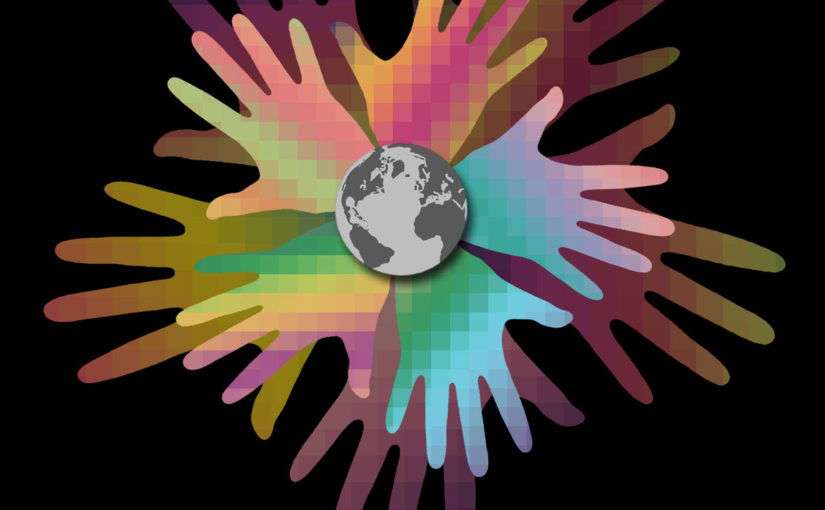Cyberbullying, hate speech, miscommunication, fake news, plagiarism. All of the above plague our schools and our students. How can we stop the cycle while simultaneously grant more and more access to technology?
Many scholars and school leaders have been focused recently on the need to prepare our students for global citizenship (Glatthorn, et al, 2016, Films Media Group, 2019, Vista, 2020, Kim, et al, 2019). School districts have adopted plans to help promote global citizenship and 21st century skills among their students. The need is real. As our students progress through their education, they will need to acquire a new skill set to prepare themselves for life and work in the 21st century. These skills include global citizenship, access to technology, diversity and tolerance, and problem solving. All of these skills require schools to infuse teaching digital citizenship into their curricula.
Teaching Digital Citizenship

Digital citizenship is an extension of interpersonal relationships to a web-based landscape. Just as young children learn to share and take turns in preschool and kindergarten, so must we teach them societal norms online. Many school districts, including Broward Schools in South Florida, include digital citizenship guidelines for their students, but leave guided curriculum and instruction up to individual schools. The result is a hodge-podge of guidance/lessons/positive behavior plans/and hallway posters.
Recently, Broward schools has adopted the Global Scholars program. Global Scholars is a subsidiary of Global Cities. The program aims to allow students in classrooms around the world to collaborate on real-world issues. Through their collaboration, students students engage in multimedia communication with other students all over the world. Some schools have integrated the program into core classes, while other schools offer the program as an elective class.
Before students are ready to engage in multimedia communication, they are taught the principles of digital citizenship. These include skills outlined in the ISTE guidelines (Garland & Tadeja, 2013); formatting emails and discussion posts, online safety and information sharing, identifying reliable online sources, and cultural sensitivity. Students emerge better able to engage and collaborate with peers in other countries, and have learned life long skills that will enable them to better communicate with people around the world.
So, 21st Century Skills Include Digital Citizenship?
Absolutely. Not only do our students and teachers need access to technology in the classroom, they need to be taught how to properly use it as a communication and research tool. As so many educational leaders tout the need for 21st century skills, they cannot neglect the importance of teaching digital citizenship. As educational leaders, it is our job to set the vision and tone for our educational organization. A clear, unified, and systematic digital citizenship curriculum should be implemented at every grade level along with the integration of advanced technology and other 21st century skills.
The following websites can be useful for helping educators deliver appropriate digital citizenship curriculum:
- https://www.commonsense.org/education/digital-citizenship – Excellent source of pre-prepared lessons on digital citizenship for each grade level.
- https://nearpod.com/digital-citizenship – Nearpod offers a pre-prepared unit on digital citizenship for schools and students with Nearpod access.
- https://www.iste.org/explore/digital-citizenship/9-resources-teaching-digital-citizenship – the International Society for Technology Education gives a list of resources on teaching digital citizenship and cultural awareness.
- https://www.edutopia.org/blog/digital-citizenship-need-to-know-vicki-davis – article on the essentials of teaching digital citizenship in the classroom.

References:
Films Media Group. (2019). What do we mean by collaboration skills? Films On Demand. https://fod.infobase.com/PortalPlaylists.aspx?wID=106133&xtid=195633.
Garland, V. E., & Tadeja, C. (2013). Educational leadership and technology : Preparing school administrators for a digital age. Retrieved from https://ebookcentral.proquest.com
Glatthorn, A., et al (2016). Curriculum Leadership : Strategies for Development and Implementation 5th ed. Thousand Oaks, California :SAGE Publications, Inc.
Kim, S., Raza, M., & Seidman, E. (2019). Improving 21st-century teaching skills: the key to effective 21st-century learners. Research in Comparative and International Education, 14(1), 99–117.
Tiven, M. and Fuchs, E. (2018). Evaluating Global Digital Education:
Student Outcomes Framework. Global Cities, Inc. NY:NY. Retrieved from https://static1.squarespace.com/static/58bc9ce2d482e9728b969c2d/t/5c4783c14ae23759d4d3b12c/1548190665293/Evaluating+Global+Digital+Education+20190122.pdf
Vista, A. (2020). Data-driven identification of skills for the future: 21st-century skills for the 21st-century workforce. Sage Open, 10(2), 215824402091590–215824402091590. https://doi.org/10.1177/2158244020915904
